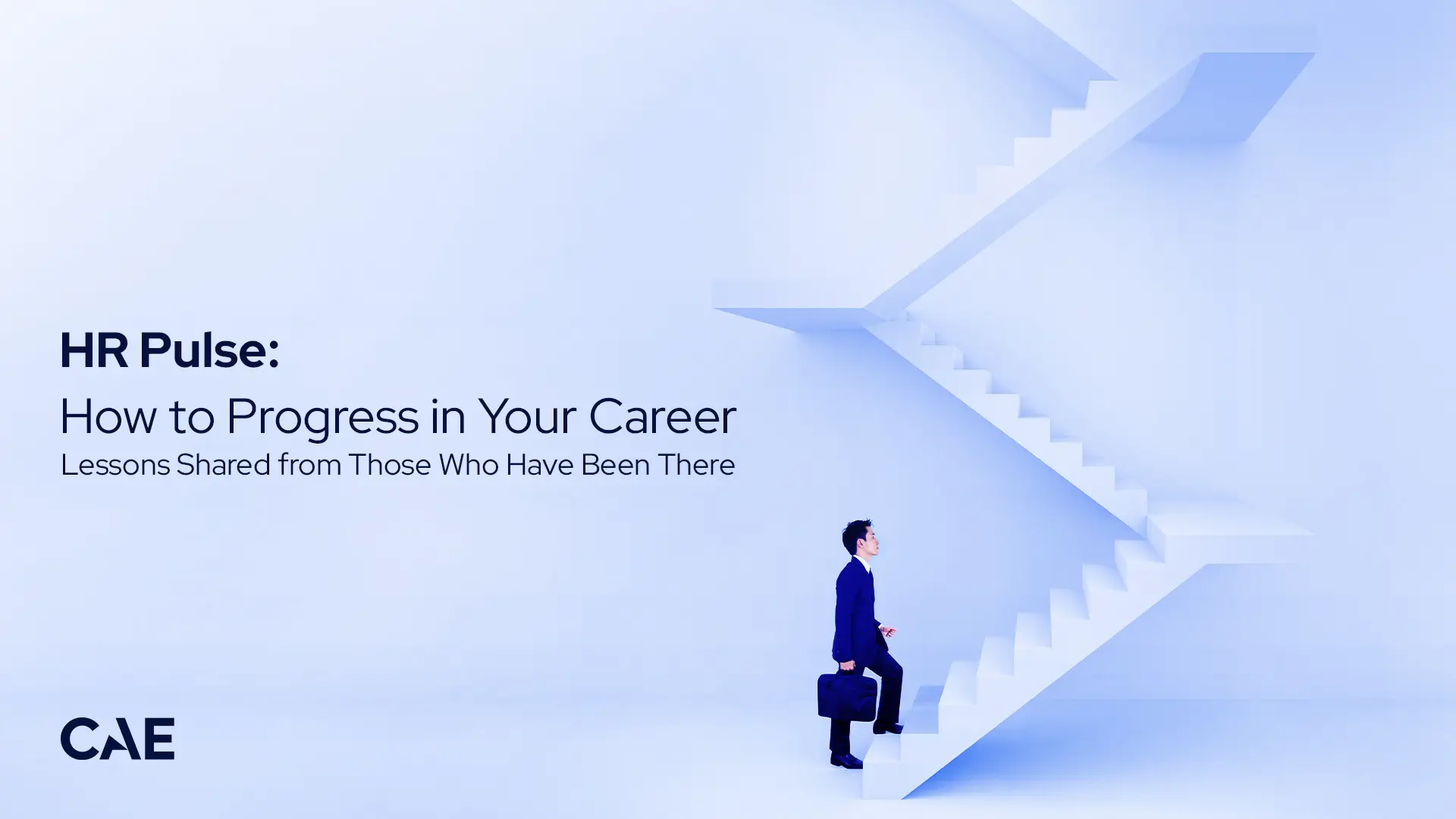


Starting your career can feel like stepping into the unknown—navigating new environments, proving your worth, and navigating career progression. To help guide you on this journey, we spoke with David Taylor, Systems Engineer at CAE USA. In this month’s HR Pulse, David shares his journey from the U.S. Air Force to corporate life and provides some valuable insights for early career professionals eager to grow and succeed.

TALENT IN FOCUS
David Taylor: From the U.S. Air Force Technician to Systems Engineering Excellence
David Taylor’s career began in the U.S. Air Force as a C-130H technician. The experience he gained while in service instilled in him a deep sense of discipline, technical proficiency, and a commitment to excellence. Upon leaving service, David attended the University of South Florida (USF) where he earned a bachelor’s degree in electrical engineering. This academic achievement opened the door for David to an entry-level role at CAE, where he gained valuable experience in electrical design, collaborated closely with cross-functional teams, and gained a deep understanding of system lifecycles.
David's journey continued to evolve. His technical expertise opened new opportunities, starting with a role in Sales Engineering. This position gave him valuable insights into proposal and lead-to-award processes. He then transitioned to Systems Engineering, where his experience and technical background positioned him for success. This role leveraged his diverse skill set, enabling him to make significant contributions to his team and projects.
Preparing for Leadership
“I actively assessed my skills, sought mentorship, and focused on continuous learning,” says David Taylor.
To prepare for new opportunities David focused on developing key leadership qualities like communication and strategic thinking. He expanded his network and actively sought out diverse experiences to broaden his perspective, all while continuously seeking to learn and adapt to new challenges.
Like many, David faced challenges, particularly his battle with perfectionism. “Perfectionism helped me early on, but later it led to overworking and burnout,” he admitted. Overcoming this required self-reflection, mentorship advice, and learning to embrace mistakes as growth opportunities. He learnt to accept that mistakes are part of the learning process. A mentor's advice to "learn from mistakes and move on" was instrumental in this transformation.
To stay current with changes and advancements in his field, David is an avid reader of industry publications. He subscribes to relevant newsletters, and joins networks with likeminded peers, follows thought leaders on social media, joins professional associations, and actively engages in online communities related to systems and electrical engineering. He also utilizes his VA benefits to prioritize continuous learning and gain useful certifications.
Mentorship and networking have significantly contributed to Davids success by providing valuable guidance, opening doors to new opportunities, and expanding his professional network. He initially learned about CAE through an established network, and a mentor helped him navigate the onboarding process. As he tells us, “My career progression has been a team effort, not solely based on my efforts.”
For David, continuous learning, goal setting and mentorship are crucial for career growth. When asked if he would have done things differently earlier in his career, he reflects, “Yes, I would have found a mentor sooner, listened more carefully, taken more notes on how and why things are done the way they are, took criticism less personally, and viewed it more like a GPS system giving you course corrections. I would have also fought harder for more advanced training.”
Advice for College Students and Entry-Level Professionals
David’s professional career has taught him valuable skills, such as adapting to professional settings, navigating complex interpersonal dynamics, strategic decision-making under pressure, effective project management, investing in professional networks, resilience in the face of setbacks, financial literacy, and the ability to quickly learn modern technologies. These skills have all played an important part in his career journey while many he admits were not taught to him in the classroom setting. David’s advice to college students and entry-level professionals, “Enjoy the journey, ask more questions, and build and maintain your network regularly and earlier on. These actions will set a solid foundation for your career.”
Key Takeaways: Strategies for Career Growth
Careers paths may vary from one person to another and one industry to another, yet they converge on several key themes: continuous learning, effective networking, resilience, and self-advocacy. Here are practical tips to help you on your journey:
Progressing in your career is not about having a flawless plan; it is about embracing growth, learning from setbacks, and building meaningful connections. David's journey illustrates that success is not just about technical skills; it is about mindset, adaptability, and the courage to keep learning.
So, wherever you are in your career, remember: every experience, challenge, and connection are a steppingstone. Keep moving forward with confidence and resilience.
Empower your future and transform your ideas into impactful solutions.